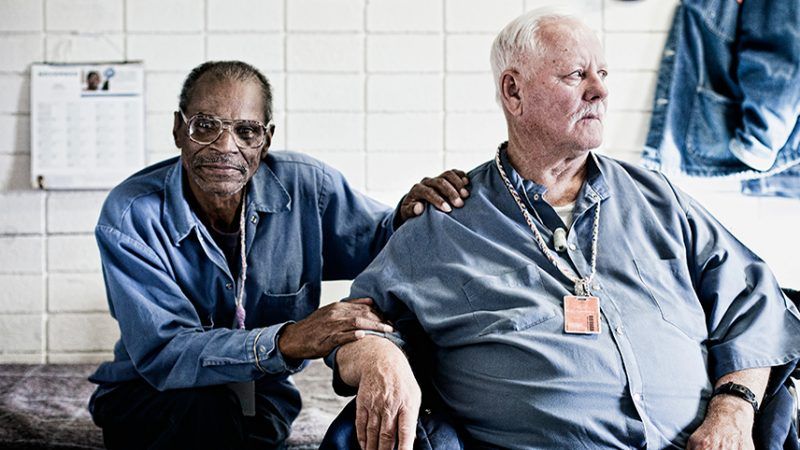Grandparents in the Gulag

Debra Cupp, 60, stood in front of the U.S. Capitol on a hot day in July holding a handmade sign: "Ron Cupp died waiting on compassionate release, Jan. 3, 2017."
Her husband Ron had complained several times to prison doctors about pain in his gut. Each time, he was sent back to his cell with aspirin. When authorities finally examined him more closely, they discovered he had metastatic colon cancer.
Because he was too weak to make it to the prison visiting room, Debra didn't get to see her husband during the last three months of his life. She found out he'd died because the prison chaplain took it upon himself to call her. The Bureau of Prisons would not officially notify her of her husband's death for another two weeks. By that time, his ashes had already arrived in the mail.
In Washington, Cupp joined other people whose incarcerated loved ones had suffered while waiting for the government to determine if they were eligible for "compassionate release." That policy, which allows elderly and terminally ill inmates to go home ahead of schedule, is supposed to afford people the small mercy of finishing their lives among family and in relative peace. But the petition process, as described by family members, is arbitrary, inscrutable, and cruel.
Since 2014, at least 81 federal inmates died while waiting for the government to review their applications, according to Justice Department records obtained earlier this year by the criminal justice reform advocacy group FAMM. And while 49 states have provisions for compassionate release, a June report by FAMM found that very few elderly and sick prisoners actually benefit. In states such as New Jersey, Pennsylvania, and Kansas, the number of inmates granted compassionate release can be counted on one hand. Thirteen states do not keep records on the process, making it impossible to say how or whether it's used at all.
"It's cruel and wasteful to continue to incarcerate people who no longer pose a threat to our society," Mary Price, general counsel at FAMM, said in a statement.
The prison population in most states is rapidly aging, as inmates sentenced to decades behind bars during the tough-on-crime '80s and '90s now enter their golden years. The long-term health effects of incarceration can be devastating, meaning that many of them will need expensive and individualized care that American prisons are not equipped to provide.
Rather than training prison guards to do hospice work, Americans should ask policy makers to do a better job balancing justice and mercy.
This article originally appeared in print under the headline "Grandparents in the Gulag."


Show Comments (35)